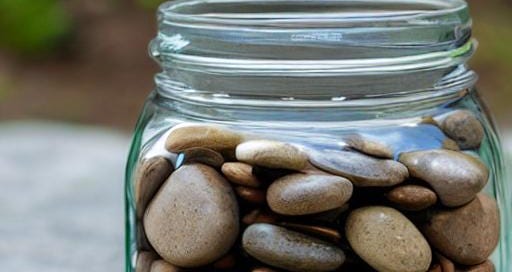I was already thinking about what self-care really means when I had a friend reach out to me last week. She recently had a baby and is also homeschooling her older children. Unsurprisingly, she’s struggling a little bit to get the emotional recharge that she needs.
She’s not alone. A multinational study of parental burnout indicated that in Australia, about 2-3% of parents are completely burnt out. In England, the percentage rises to 3-4%, and in America it’s even higher at 7-8%. That’s not to say that the other 90% of parents are coasting along fine. The mean score on the parental burnout scale in these countries is still in the range of 25-35, which indicates that many parents are responding that they feel run down by their role as parents, don’t enjoy being with their children, and don’t feel like the parents they used to be, at least some of the time.
According to pop psychology, the answer to parental burnout is me time. Which makes sense intuitively. If you’re feeling stressed by the role you’re playing, taking a break from that role to spend time relaxing on your own should be exactly what you need. The problem for many parents is that true “me time” – time ALONE with the autonomy to do what you find relaxing - rather than time alone to run errands or engage in basic personal care tasks, is incredibly rare. Particularly for those who have very young children, or are homeschooling, or are single parents, having time alone for any reasonable length of time may be something that only rolls around only once in a blue moon. And then when it does happen, we stress about how we should spend that time – should I be binging something on Netflix, taking a nap, going for a run, deep cleaning the kitchen? Then me time ends, and we are often left unsatisfied.
So what are parents meant to do? Are we meant to campaign for longer and more frequent periods of me time?
“The quality of time you spend with yourself determines the quality of your relationships with everyone else.”
- Adriene Mishler
Here’s my personal opinion – you can’t rely on me time, especially if you’re in a stage of life where it’s hard to get any time alone.
Yet having opportunities to emotionally recharge is crucial. When we are emotionally depleted, we’re more likely to be snappy, dismissive, and impatient with our children, partners, and friends.
Here’s the thing - we can engage in real self-care without taking me time. We can emotionally recharge, even with our kids around.
It’s been said that you can’t pour from an empty cup. If we want to be able to give our best selves to those around us, we need to fill our emotional reserves. So over the next few weeks, I’m going to unpack the three Cs (competence, connection, choice) of our basic psychological needs – the three things every human needs to fill their emotional cups. I’m also going to address eight things that get in the way of having full emotional reserves, or the eight rocks that sit in our figurative emotional cups, preventing them from getting filled in the first place. I remember these eight rocks from the song Heads, Shoulders, Knees, and Toes:
Head – mental clutter
Shoulders - or more exactly, armpits, and basic personal hygiene
Knees – getting on our knees for moments of stillness
Toes – using our feet to get us to exercise and take some outside time
Eyes – sleep
Ears – sensory overstimulation
Mouth – hunger and meeting nutritional needs
Nose – illness and disease
Importantly, I want to make it clear that I don’t have all the answers. In all honesty, when I read the message from my friend telling me that she was having a tough time, I was hiding from my kids sitting on the kitchen floor. I also get overwhelmed and find my emotional cup full of rocks rather than emotional reserves. However, when that does happen, and I find myself getting irritable and snappy with others, I know what the likely culprits are.
To help us all work towards greater emotional stability and less parental burnout, I’ll be starting a subscriber chat so that we can all support each other. This will work best if we are committed to vulnerability and honesty.
Also, to provide greater value to my paid subscribers, I’ll be sharing more ideas about what these rocks look like in our kids, and how to help our kids meet their own basic psychological needs. These will appear in my weekend newsletter.
I'd love to hear your thoughts! Are you excited to start finding ways to get the emotional rejuvenation you need?
And join the subscriber chat to find a support network of like-minded people.
Oh, and before you go
If you enjoyed this article, and want to read more, consider subscribing for free. That way you won't miss the rest of the real self-care series, they'll appear right in your email inbox.
But if you can't wait for next week, check out these recent articles which I think you might enjoy:
And consider upgrading to paid to receive my weekend newsletter as well, with additional tips on how these things relate to our kids.





